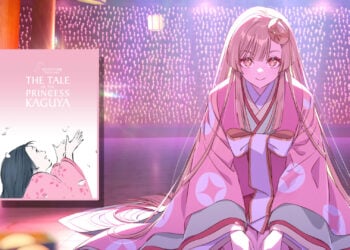In the vibrant world of K-pop, where music, fashion, and culture intertwine, even the smallest details can spark widespread discussion and controversy. Recently, BTS member Jungkook found himself at the center of a heated debate after wearing a cap emblazoned with the phrase “Make Tokyo Great Again.” This seemingly simple fashion choice ignited a storm of reactions, with fans and critics dissecting its meaning and implications.
Meanwhile, fellow BTS member J-Hope’s rehearsal for the song “H.O.T.S” has stirred political debate, adding another layer to the ongoing conversation about K-pop’s cultural influence and responsibility. This blog post delves into the controversy surrounding Jungkook’s cap, explains the significance of the phrase, and explores the political discussions sparked by J-Hope’s rehearsal, offering a nuanced perspective on these recent events.
Table of Contents
BTS Jungkook Cap Controversy: Understanding “Make Tokyo Great Again”
Jungkook’s choice to wear a cap with the slogan “Make Tokyo Great Again” quickly caught the attention of fans and media alike. The phrase, reminiscent of political slogans used in other contexts, raised questions about its intent and meaning. For many, the phrase seemed to evoke nationalist sentiments, which can be sensitive given the complex historical and political relationship between Japan and other countries in the region.

The controversy highlights how fashion in K-pop is not just about style but can carry cultural and political weight. Jungkook’s cap became a symbol that fans and observers interpreted in various ways, sparking debates about cultural sensitivity, historical context, and the responsibilities of global celebrities. While some defended the choice as a fashion statement without political intent, others saw it as a provocative symbol that needed to be addressed thoughtfully.
J-Hope’s H.O.T.S Rehearsal and the Political Debate
Adding to the discourse, J-Hope’s rehearsal for the song “H.O.T.S” has also become a focal point of political discussion. The choreography and themes of the rehearsal have been analyzed for their cultural references and potential political messages. In a genre known for its powerful performances and symbolic storytelling, every move and lyric can be loaded with meaning.
The debate around J-Hope’s rehearsal reflects broader conversations about how K-pop artists navigate political and social issues through their art. Fans and critics alike are engaging in discussions about the role of K-pop in addressing or reflecting political realities, and how artists balance entertainment with cultural commentary. This ongoing dialogue underscores the growing influence of K-pop beyond music, as a platform for cultural expression and political engagement.
Cultural Sensitivity and Global Influence of K-pop
The controversies involving Jungkook and J-Hope underscore the challenges K-pop faces as it continues to expand its global reach. With millions of fans worldwide, K-pop artists are increasingly scrutinized not only for their music but also for their cultural and political expressions. This scrutiny calls for a heightened awareness of cultural sensitivity and the impact of their choices.
K-pop’s global influence means that artists like BTS carry the weight of representing diverse audiences and navigating complex cultural landscapes. The incidents remind fans and artists alike of the importance of context, dialogue, and understanding in a world where cultural symbols can have varied and profound meanings.
Fan Reactions and Community Discussions
The fan community’s response to these controversies has been vibrant and multifaceted. Many fans have expressed support for Jungkook and J-Hope, emphasizing the importance of intent and artistic freedom. Others have called for more awareness and responsibility, urging artists to consider the broader implications of their choices.
Social media platforms have become arenas for passionate discussions, with fans sharing perspectives, historical insights, and cultural analyses. This engagement reflects the deep connection fans have with K-pop and their desire to see their idols navigate their roles thoughtfully and respectfully.
Inside Wamiqa Gabbi’s Elegant Mumbai Home: Stylish Interiors, Family Comfort & Celebrity Charm
FAQs
Q1: What does the phrase “Make Tokyo Great Again” mean in the context of Jungkook’s cap?
The phrase is reminiscent of political slogans and has sparked debate due to its nationalist connotations, especially given Japan’s historical context. Interpretations vary, with some seeing it as a fashion statement and others as politically sensitive.
Q2: Why has J-Hope’s H.O.T.S rehearsal sparked political debate?
J-Hope’s choreography and themes in the rehearsal have been analyzed for cultural and political symbolism, leading to discussions about K-pop’s role in reflecting or addressing social issues.








